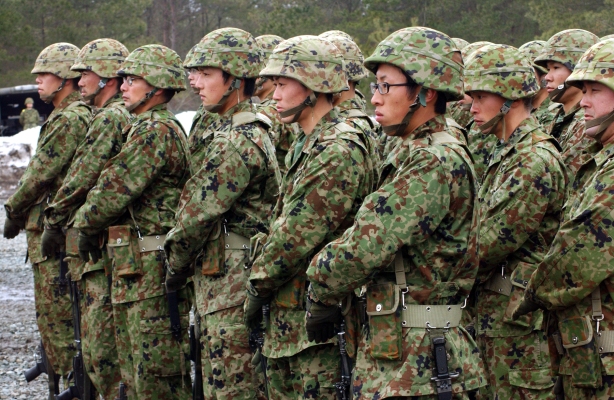On Thursday, the Japanese cabinet approved a set of bills bolstering the role and scope of its military, as the pacifist country redefines its position in the increasingly roiled Asia-Pacific region. Since the end of the Second World War, Japan had focused solely on the defense of its home islands, going so far as to name its army the Japan Self-Defense Forces. Now, in light of recent hostile moves by North Korea, territorial disputes with both mainland China and Russia over several islands, and terrorism, Japan, at the prodding of several allied nations, looks to protect its interests by expanding its zone of control and mandate for its military. According to Prime Minister Shinzo Abe, “In the past two years, Japanese nationals have fallen victim to terrorism in Algeria, Syria and Tunisia; Japan is within range of hundreds of North Korea’s ballistic missiles and the number of (fighter jet) scrambles has risen seven-fold in a decade. This is the reality. We should not try to ignore it.”
Revisions include removing geographical constraints on logistical support for friendly forces in “situations that would significantly affect Japan’s security.”
They also say Japan can defend allies “in situations where there is a clear risk that Japan’s existence is threatened and its people’s rights…are compromised through an attack on a country which has a close relationship with Japan.”

